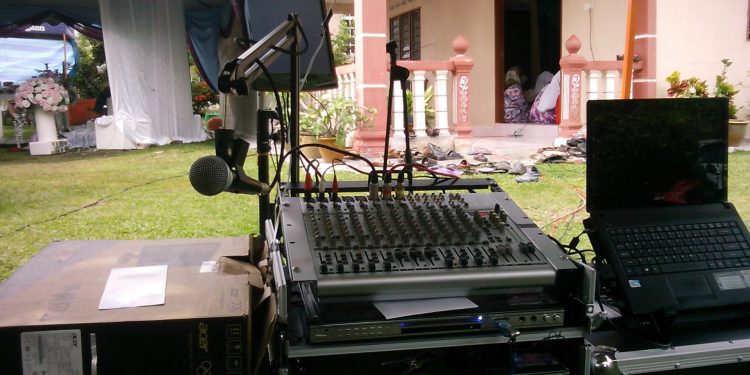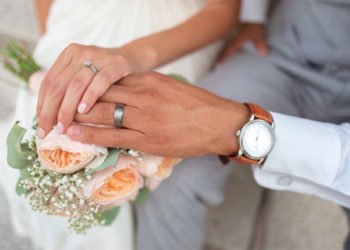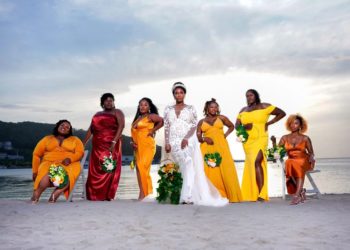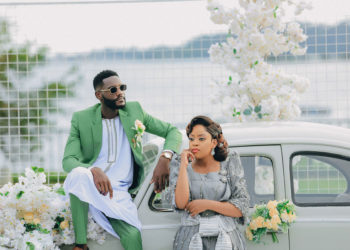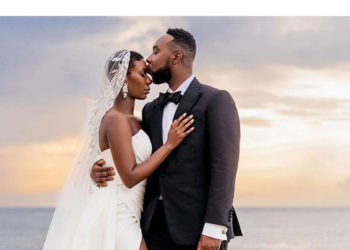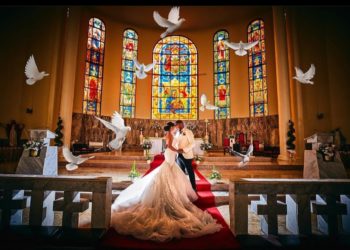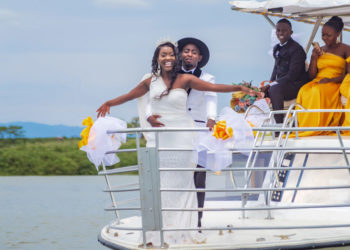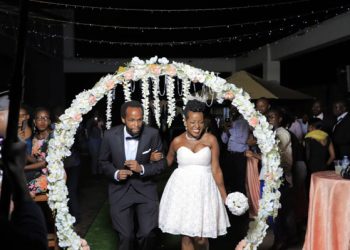By David S Mukooza
Music is placed under entertainment in most of the wedding plans and it is one of the most important items at a wedding. Without music, a wedding reception will be boring. When you think about your wedding music, your first thought is probably the song you will dance to while making that grand entrance into the reception. The reality is, there is more a wedding’s music than that.
Traditionally, the most basic wedding ceremony music program involves a minimum of two types of songs preludes which is light and ambient music that sets the mood processionals and recessionals.
According to Andrew Galabuzi the CEO of Ashton Events, before choosing the actual songs to be played first thing is identify the setup space. Consider the size of your ceremony venue when putting together your ensemble. For example, a huge sound system may overwhelm the space while having a small sound system in a huge space might make no impact. Also importantly if you’re having an outdoor wedding, you probably need more sound than when you have an indoor wedding. This has to be done by the service provider together with the bride and groom or any other person on the wedding planning team.
Music service providers
Rules and restrictions of the ceremony venue have to be considered because some ceremony sites may have strict guidelines that you’ll need to be aware of such as setting limits on the noise (volume and curfew) or space allocated for the disco. This may greatly affect the wedding music.
Galabuzi encourages wedding planners to mark a key person who is the head DJ or the overall leader of the disco crew because this will help in quick and better coordination.
Galabuzi emphasizes that the bride and groom should make a lot of research to find potential service providers for music.
What music should be played?
Weddings especially here in Uganda will have a gathering of many age levels including children who are in most cases few, the youth who attend in large numbers, and the old averagely 50 plus who are mostly invited by the parents of the newly wedded. Music has changed so much and even the tastes and preferences are hard to balance. For example the 50 plus want to listen to Afrigo while the youth want to listen to the famous hits of Sheebah and the likes of Fik Fameica.
According to DJ Roger, priority is given to the newlyweds to select the songs they want especially for particular sessions in the wedding like at the grand entrance in the reception, the first dance and probably when exiting or going to change outfits. Another incident may be when the parents are coming to say a word to the invited guests; cultural music in most cases is played because this is what most parents want. If a 30-year-old is wedding and the friends are invited, the music will be different and a few modern songs are expected to be played. DJ Roger says after those moments are honored then it will be the DJ’s brilliance and ability to read the audience, the mood and events happening that have him or her know the perfect songs to play.
Cost
Ismael Dhakaba Kigongo, the CEO of Party City Events company, explains that there is probably no music and public address system owner who has a definite price for a particular event. However most of them have got a minimum they charge. Music systems are entirely a subject of negotiation between the client and the probable service provider. The costs are mainly dependent on location of the wedding, the size of the venue, the number of invited guests, the period of play or the time the service provider will take while playing the music.
This is because the person playing for six hours might not charge the same as the one playing for 10 hours. Costing might also depend on the prominence of the service provider. Some service providers command high prices because they are popular and therefore their demand is high.
Still, music remains one of the most loved wedding services and once music is handled rightly, and tenders given to the right service providers, one will have ceremonies to remember for a life-time.

